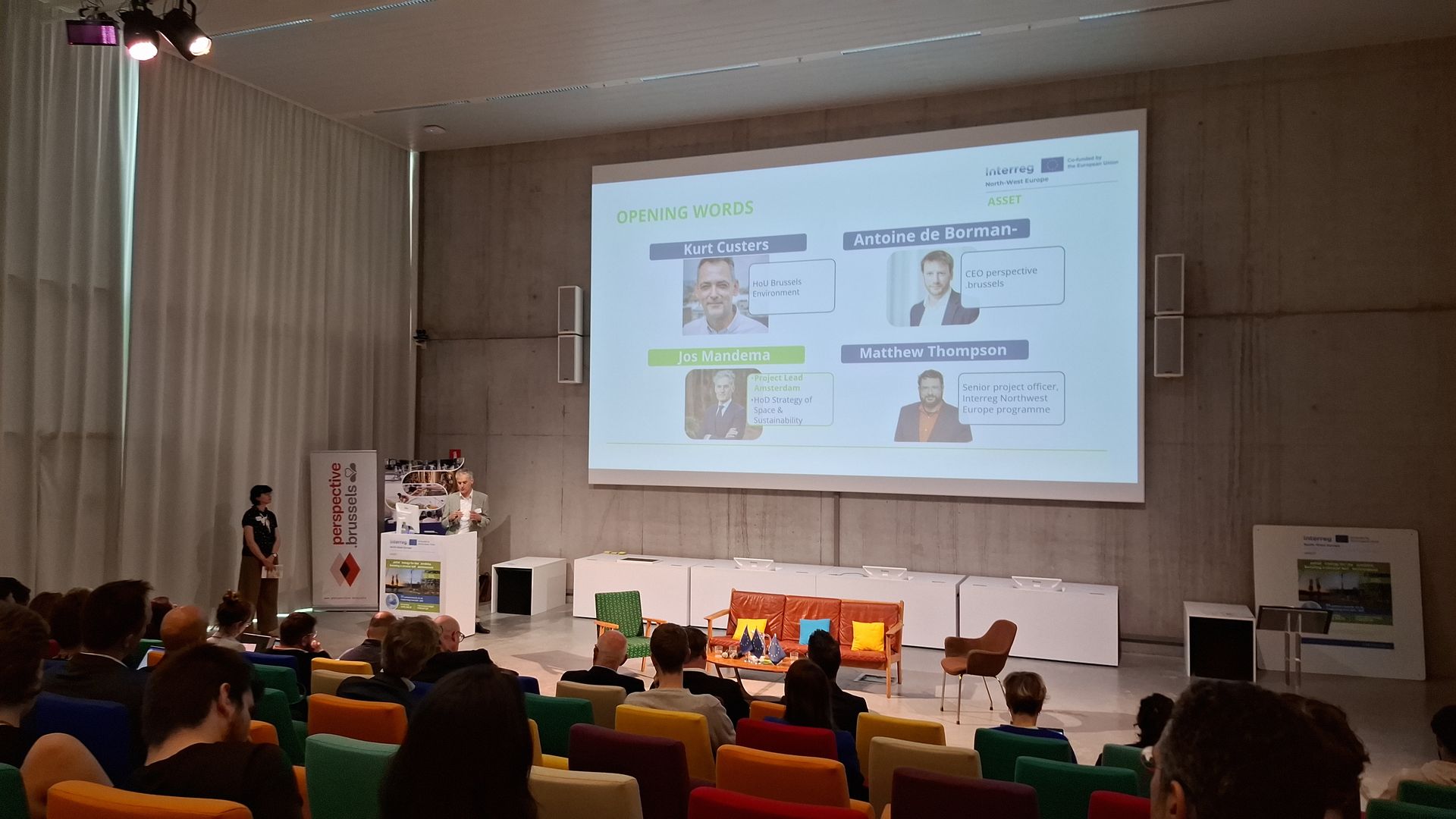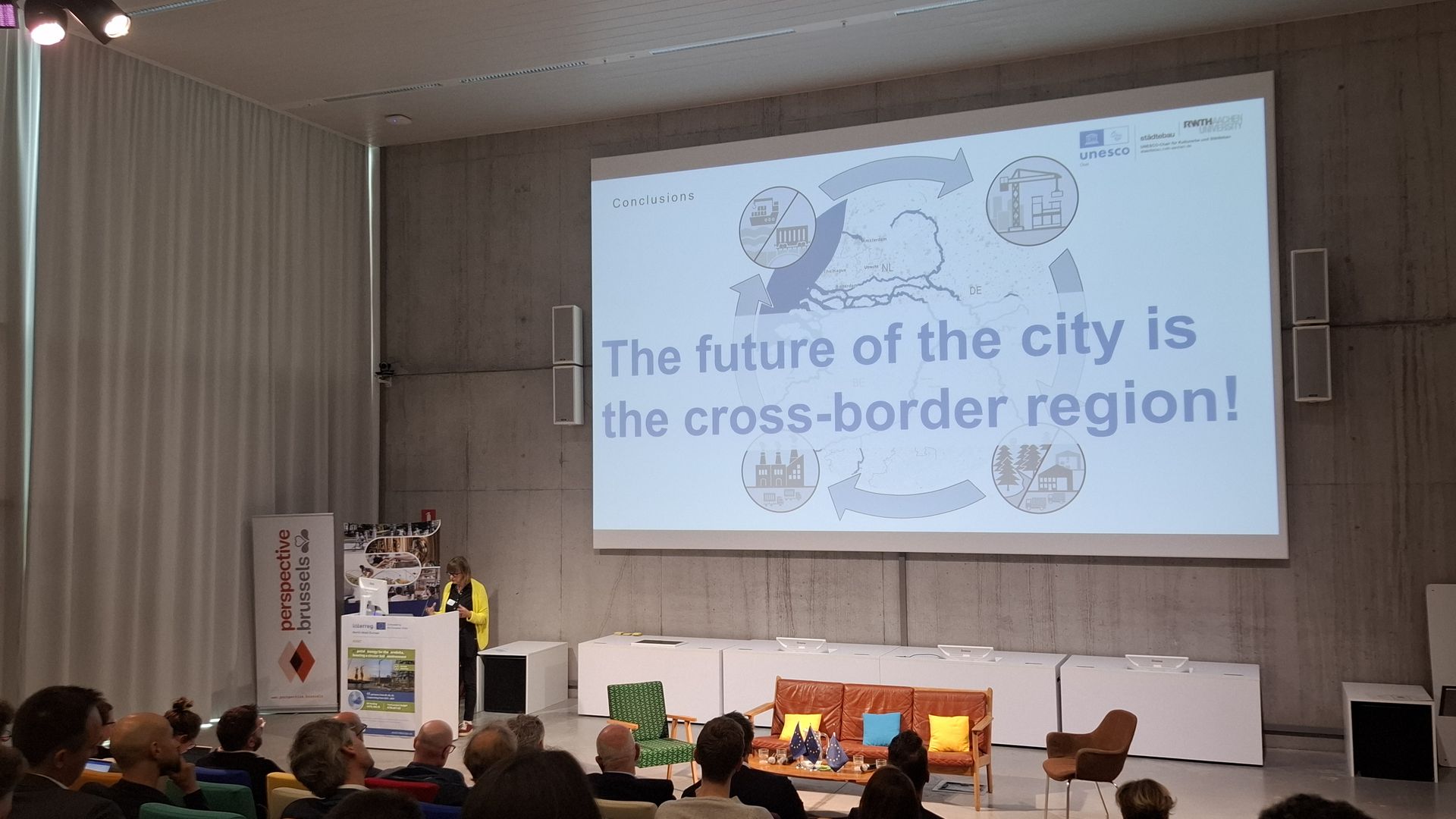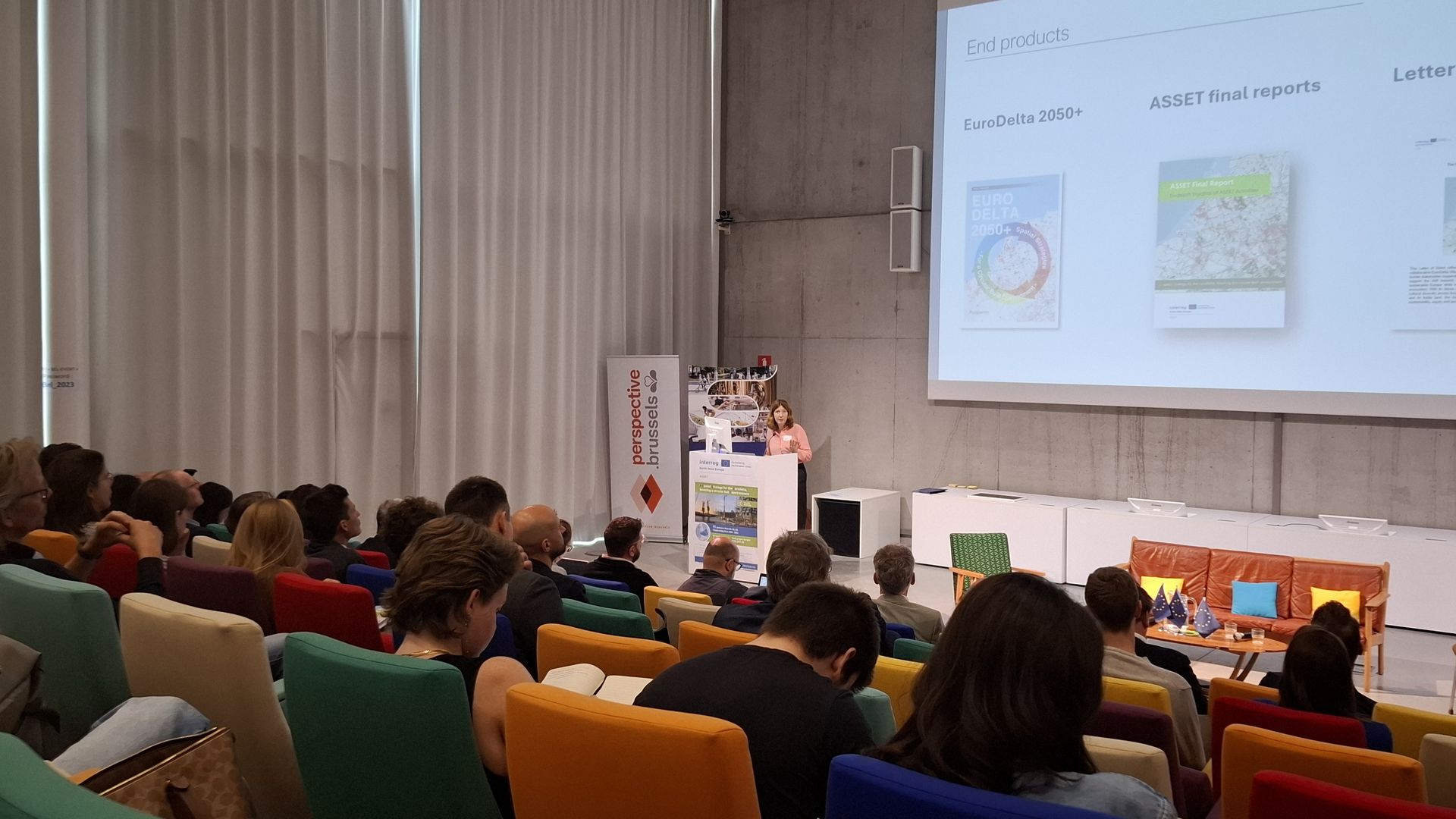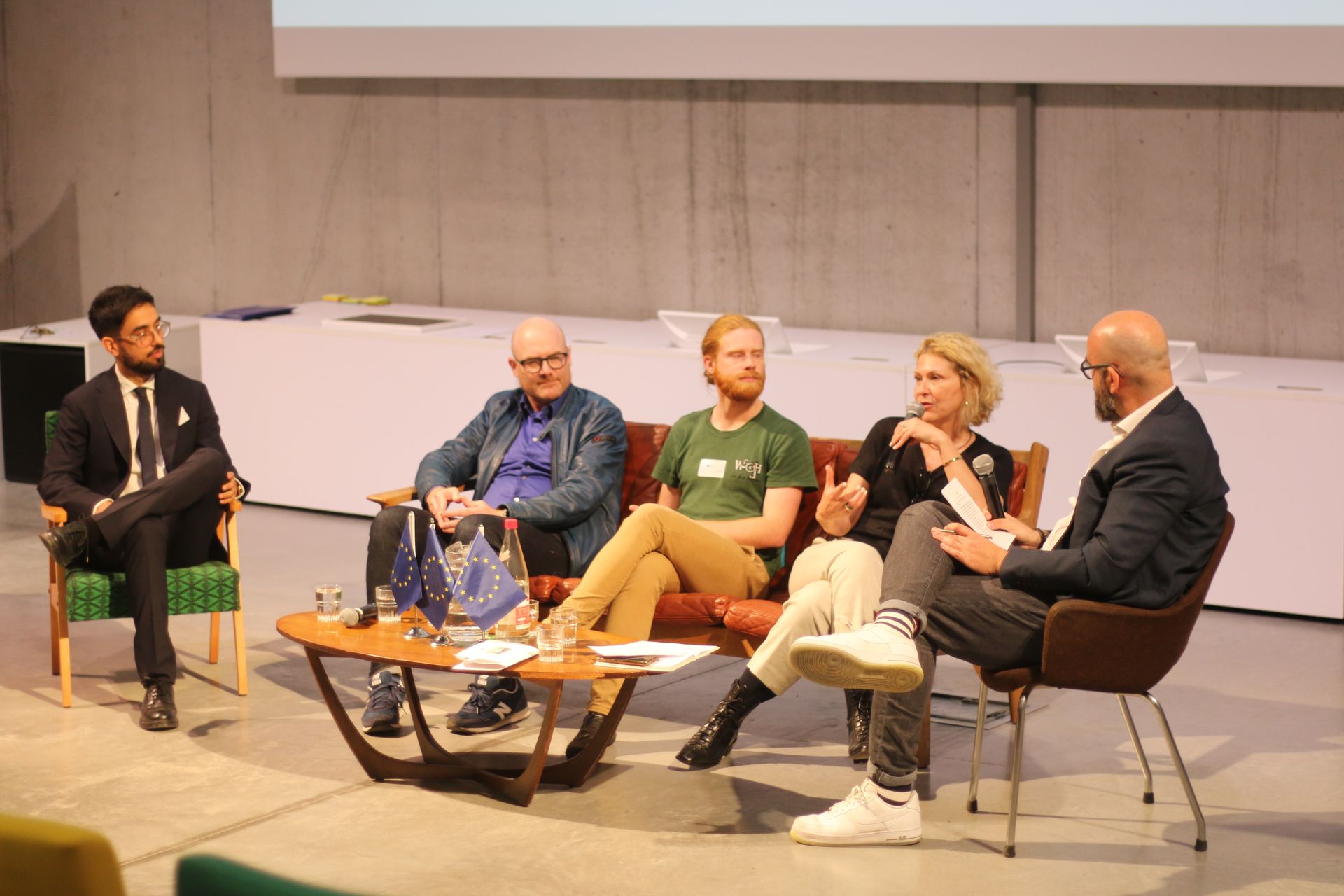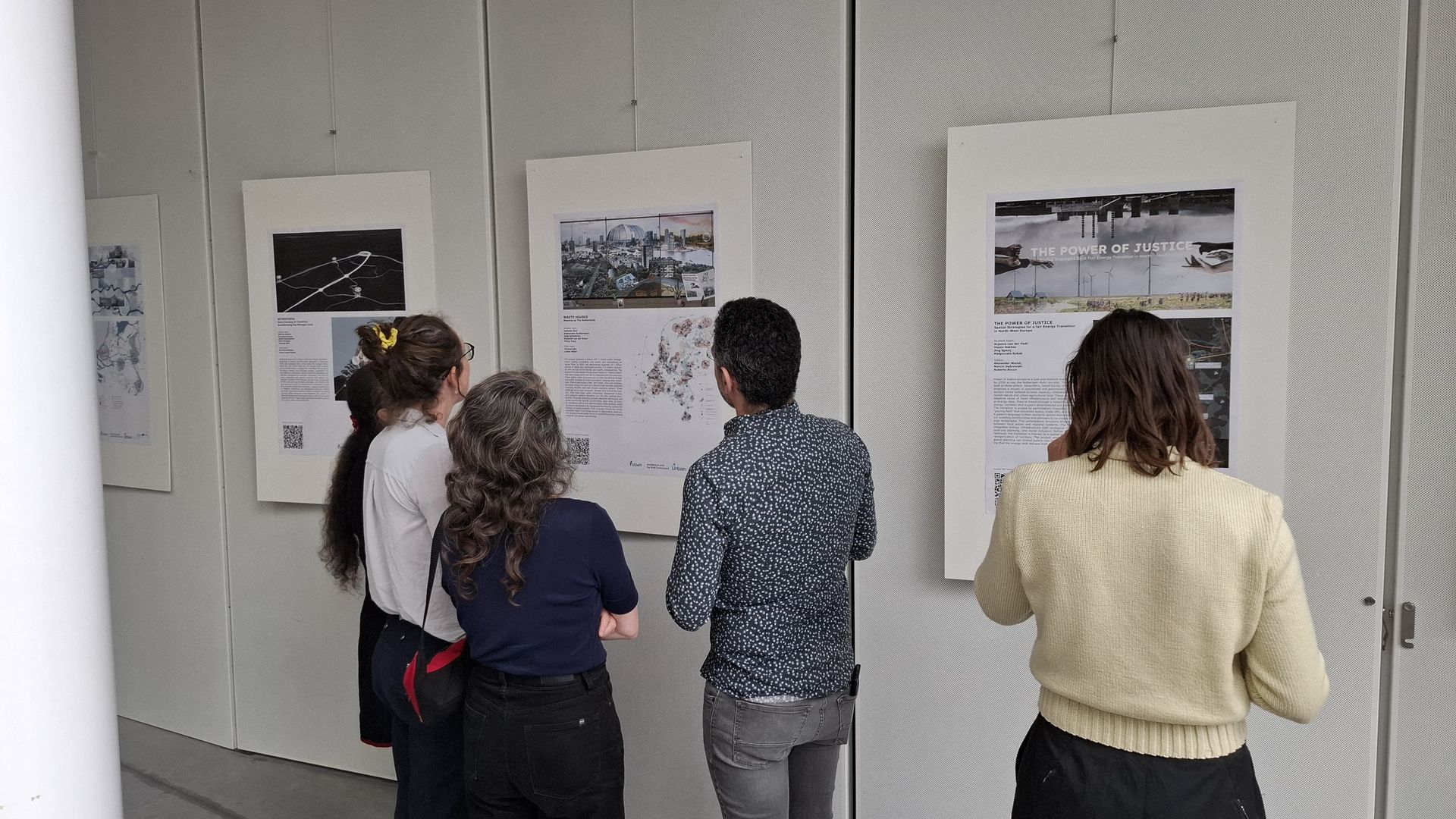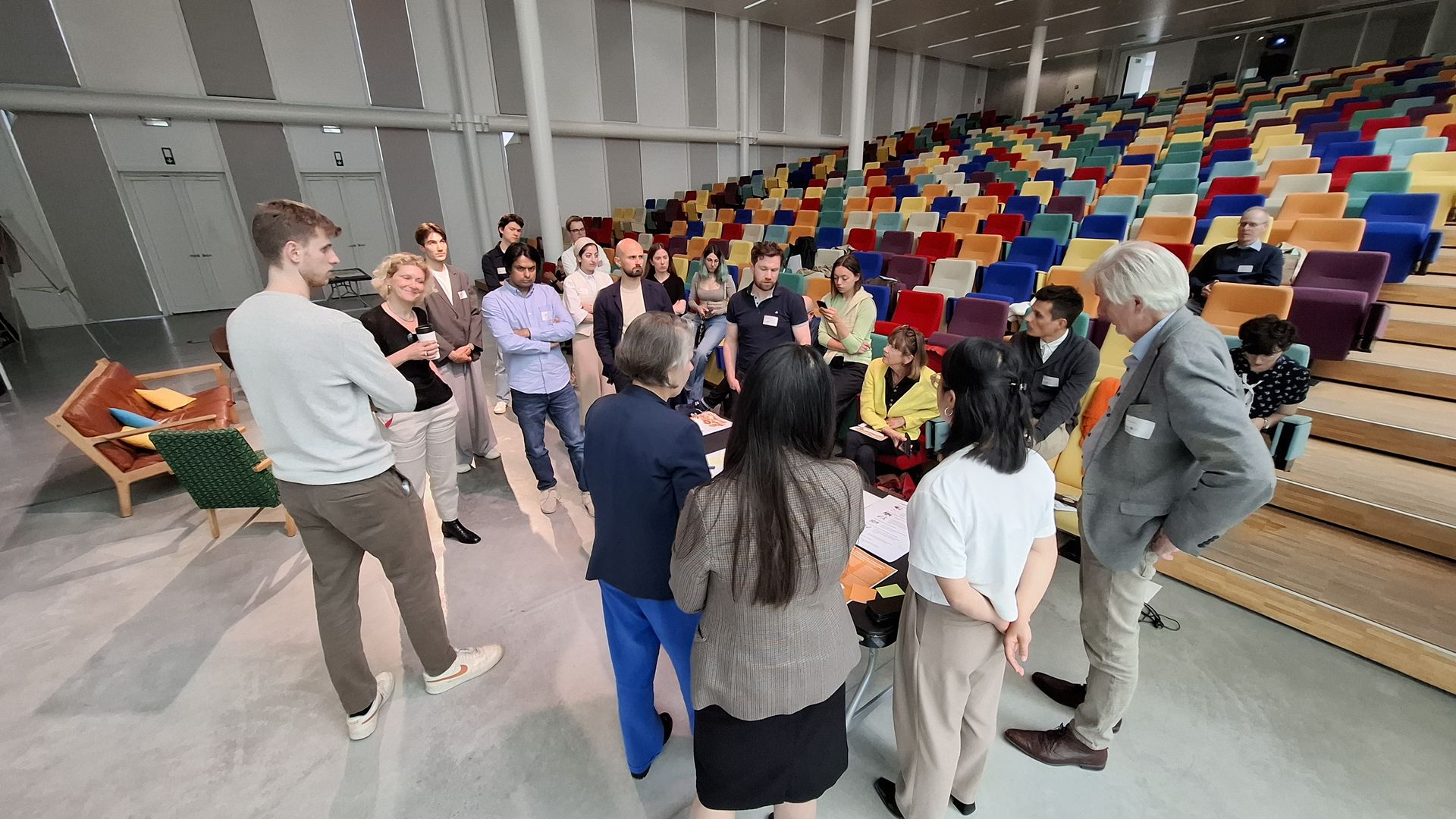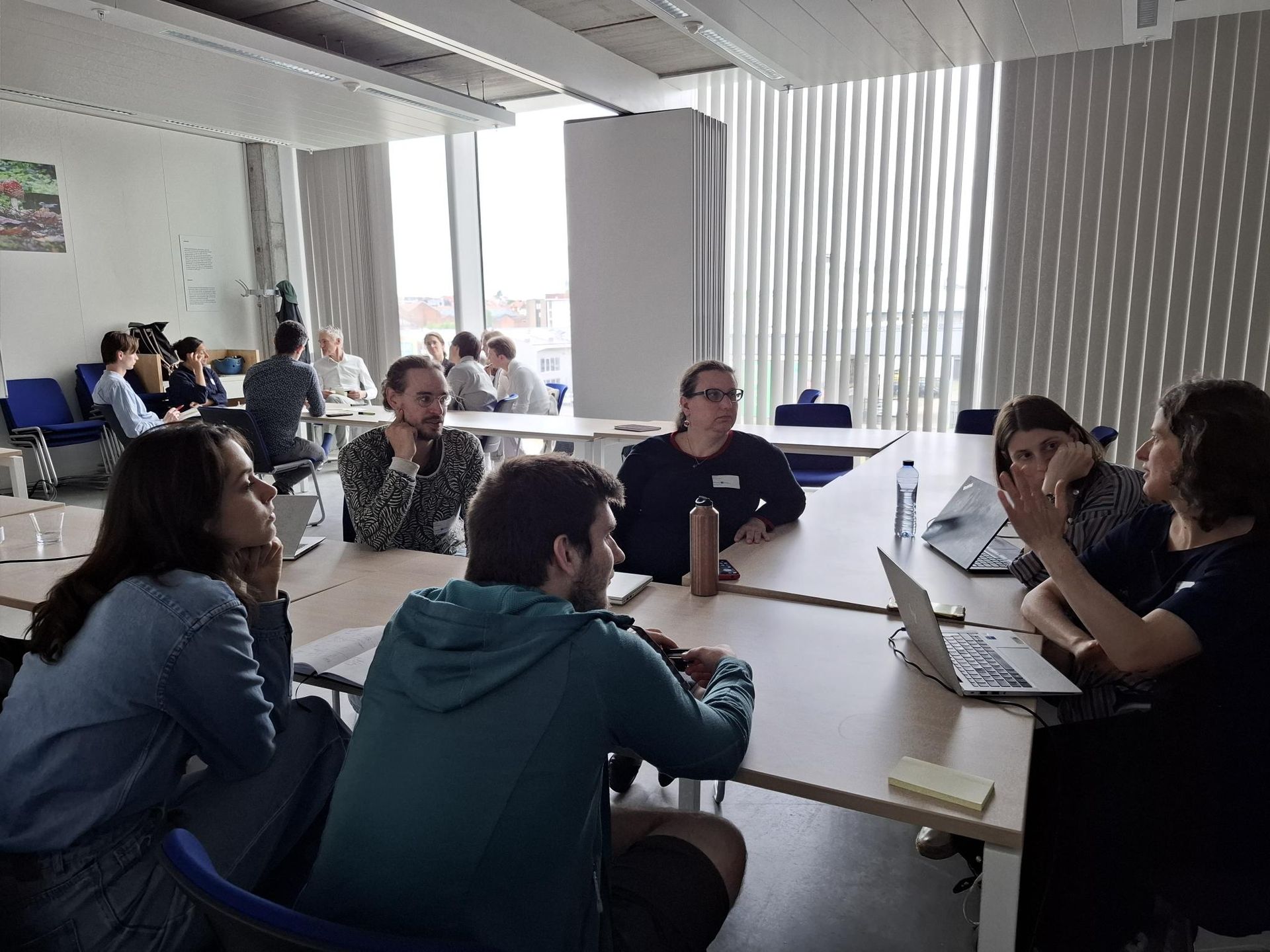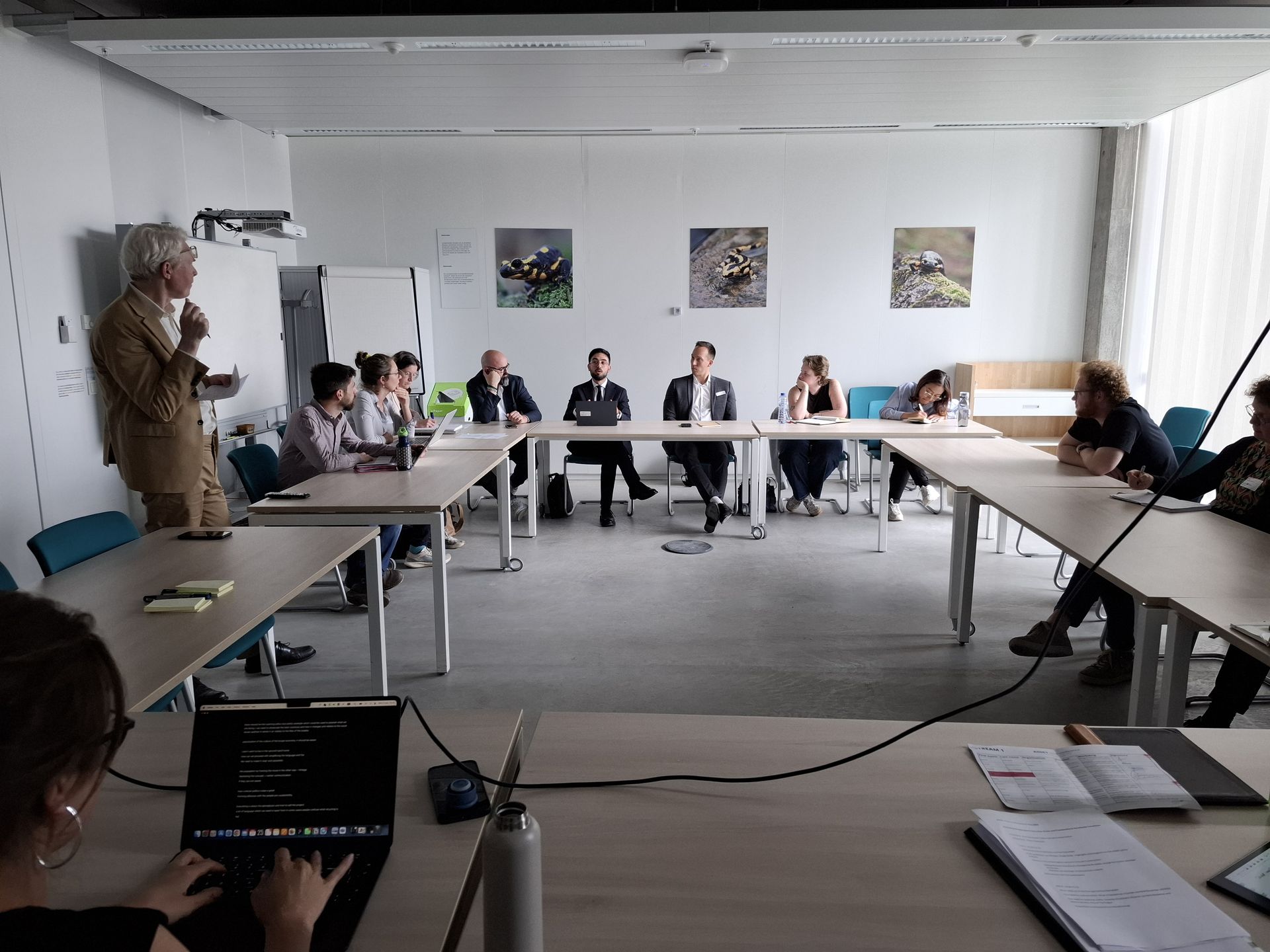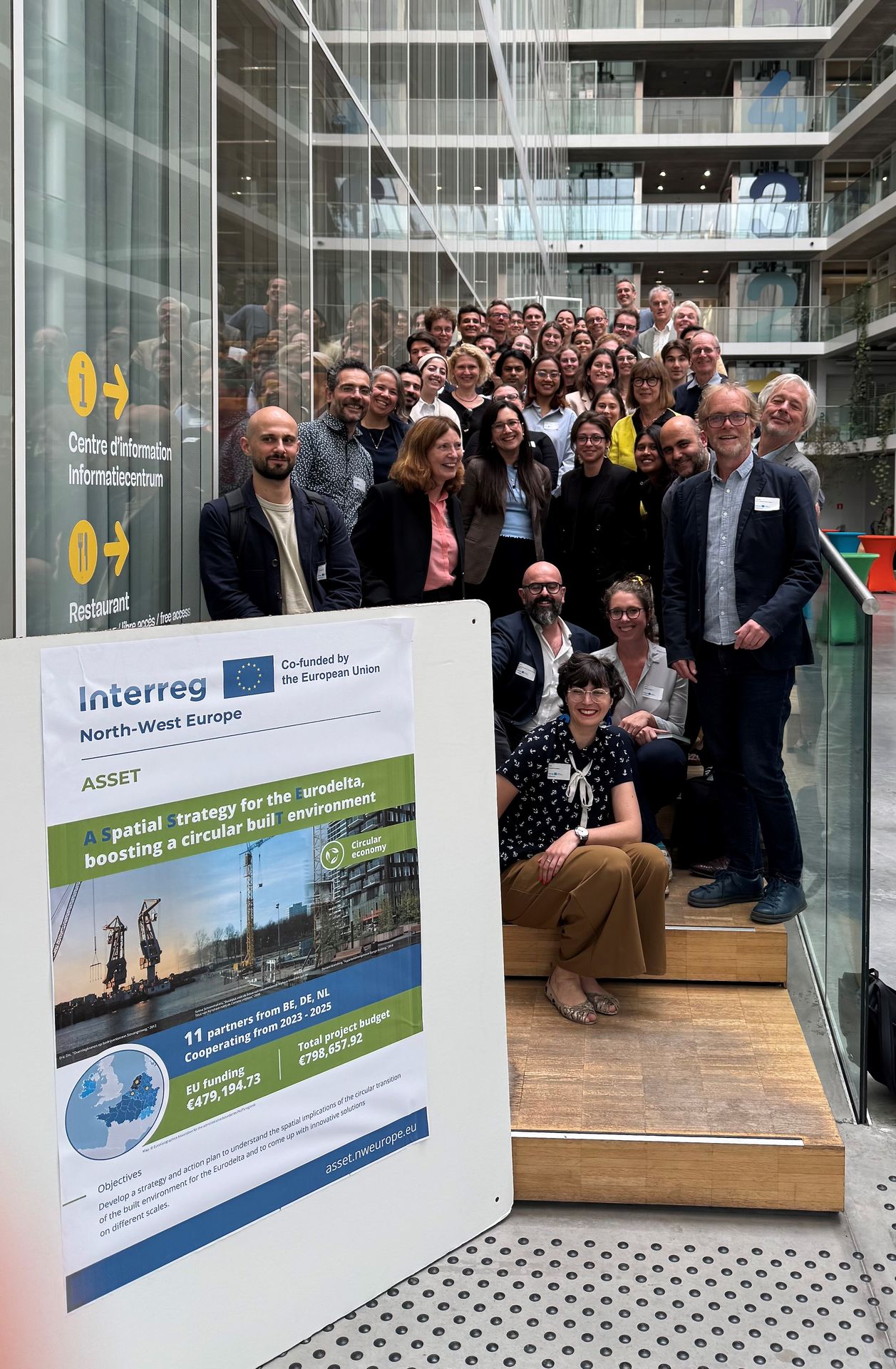On 21 May 2025, the ASSET Final Conference took place in Brussels wrapping up over one year of exploring spatial implications of circular economy in the built environment and exchanging experiences and innovative practices within the EuroDelta.
Experts, researchers, urban practitioners, industry representatives and students were present and fully-engaged during a full day dedicated to circular economy, the built environment, spatial planning and showcasing how transnational and cross-border collaboration in the EuroDelta can significantly boost the transition to a Circular Built Environment (CBE).
This event was also the official launch of the EuroDelta Alliance – a collaborative, mission-driven network that will advocate for the recognition, funding and promotion of the EuroDelta megaregion at the European, national, and regional scales. The ASSET partners signed the Letter of Intent (LOI) as the founding members of this Alliance.
Moderated by Cé cile Houpert from perspective.brussels, the itinary of the final conference is as follows:
- Opening words by officials from Brussels and Amsterdam (Kurt Custers from Brussels Environment, Antoine de Borman from perspective.brussels, Jos Mandema from the City of Amsterdam) as well as Matthew Thompson representing the Interreg North-West Europe Programme.
Image credit: Bas Horsting
- A keynote speech by Professor Christa Reicher from RWTH Aachen which focused on circularity as a challenge and a new dimension of urban and regional development. Preliminary remarks were made on the necessity of setting out future paths; principles & scales of circularity; EuroDelta & ASSET.
- A presentation on ASSET by Dagmar Keim, the project lead from the City of Amsterdam in which she talked through the storyline of ASSET including the approach, key aspects, activities, deliverables and final outputs (including latest version of inspirational maps and the formation of the EuroDelta Alliance).
Image credit: Bas Horsting
- The signing ceremony for the EuroDelta Alliance, in which representatives of ASSET partners signed the Letter of Intent (LOI) as founding partners of the alliance, establishing these organisations' commitment to further work and collaborate on the scale of the EuroDelta.
Image credit: Wassil Benamar
- A moderated roundtable discussion with a range of experts regarding challenges of transitioning towards a circular built environment. The experts included Olga Ioannou from TU Delft, Dominique Girolami from OVAM - Flemish Public Waste Company, Börje Wichert from Duisburg Business & Innovation, and Georges Laimé from OECD; moderated by Alfredo Corbalan from perspective.brussels.
The main takeways from this rountable session: - Cultural shift is needed for society to embrace circular design in buildings & environments
- Common EU legislation is required for recognition & certification of reused or secondary materials
- Essential: increased research on building materials, new teaching methods & skill development
- Proposals for reduced or eliminated VAT on reused materials should be considered
- EU trade regulations need to change for fair taxation and competition between greener materials produced in the EU and less sustainable imports
- EuroDelta digital platform is needed to connect material banks for real-time availability
- Clear legal frameworks to support new business models for the circular economy
- Space is a critical issue especially for storage & logistics
Image credit: Wassil Benamar
- In parallel, an exhibition was organised during the whole day for the public to discover reflections and creative proposals from students at TU Delft and RWTH Aachen, linked to the themes of ASSET.
Image credit: Wassil Benamar
- Workshops in the afternoon, where participants were divided into the following workshop groups (moderated by ASSET partners) that took place in parallel to each other:
- Workshop 1: Bridging the policy gap: rules and frameworks to accelerate transitions
- Workshop 2: Why scale matters: working across geographical and mental borders
- Workshop 3: Reshaping hardware and software towards a circular built environment
Workshop
1:
Workshop 1, "Bridging the Policy Gap — Rules and Frameworks to Accelerate Transitions," consisted of two parts: understanding the policy gap and focusing on The EuroDelta Alliance. Regenalyze's policy analysis guided participant discussions.
Key systemic challenges identified: Competition for space, fragmentation in circular market development, and the need for cultural & institutional change.
Key observations: no common framework for measuring impact, circularity is often absent in city strategies, urban development goals do not align with circular objectives, mismatch between policy cycles and market logic
Main conclusions:
1. Stronger leadership and frameworks are needed to address fragmentation and align policy with market goals.
2. Cultural and narrative shifts are essential; circularity must be visible and appealing to the public and professionals.
3. Macro-regional collaboration, such as with EuroDelta, is crucial for scaling, harmonizing policy, and accelerating transitions across regions.
Workshop 2:
The 2nd
workshop focused on working out the 3 inspirational maps that were presented
by Dagmar during her presentation. The objective was to foster discussions
regarding these maps and gather feedback from the participants. To
start, there were presentations on scale and circular concepts, which was
followed by group work, where each map was assessed and discussed per allocated
group of participants, moderated by an ASSET representative.
Image credit: Bas Horsting
Below, main insights from each map discussion are provided:
Map 1 - Biobased materials:
The organizations of the participants involved in the biobased materials discussion have goals and ambitions that are in line with the vision of the biobased map. However, the major potential conflict that arises is with other land (and water) uses outside of cities, particularly food production. To address these issues, national organisations such as Ministries of Agriculture and local planning agencies should be involved as well as research and knowledge institutes on future proof agriculture/aquaculture. Steps taken should be to investigate possible conflicts but also possible win-win situations e.g. intensifying use of residual products from food production or from food waste.
Actions to be taken by specificic organisations:
- All: Go vegan as this will decrease land use demand for livestock & food production
- Academic institutions (TU Delft & RWTH Aachen): Research and invent new biobased materials such as bioplastics; educate students in circular building, particularly biobased construction; educate students in a bioregional approach
- Organisations like Vereniging Deltametropool: Knowledge creation via thematic research
- The Hague and Amsterdam: Implement policies that promote or demand use of biobased materials with precise requirements (e.g. 30% of all buildings should have biobased structure); set up collaboration with businesses and knowledge institutes (triple helix); be a launching customer in which biobased is the standard for city owned assets (public space, government buildings)
Map 2 - Secondary materials:
The strategy to create local and regional circular hubs aligns with current regional policies, but specific hub locations may conflict with other spatial objectives and biodiversity due to increased water transportation.
Connecting with the EGTC Rhine-Alpine is advised, as South Holland is part of this cooperation alliance. Participants recommend establishing a hierarchy among the hubs, incorporating existing circular initiatives like material banks, and identifying knowledge institutes, as a circular built environment needs innovative approaches to material use, design, construction, and disassembly.
Map 3 - Economic symbiosis:
The least developed map at the time, which led to discussions on relevant symbiotic relations and their positive impacts beyond circularity.
For relevant relations, the focus is on achieving urban symbiosis that involves multiple sectors and citizens in the exchange of materials, energy, services, and spaces. This includes spatial planning, design, institutional arrangements, and knowledge exchange beyond higher education. Additionally, urban-rural symbiosis should be considered.
Regarding positive impacts, participants emphasized the importance of creating healthy environments for urban symbiosis and strongly supported involving just transition areas to ensure a fair transition to a circular society.
Workshop 3:
The 3rd workshop focused on the hardware and software towards a circular built environment. This workshop was split into 2 phases: presentations followed by workgroups, on each topic (hardware and software).
Main insights per workgroup topic are provided below:
HARDWARE:
- Semantics: The term "reuse centre" encompasses various structures involved in sourcing, storing, and processing materials from the circular economy. These can range from fully public to fully private ownership, with varying levels of public access.
- PREUSE Project: The PREUSE (Public Responses to Enable the Use of Salvaged building Elements) project supports establishment of publicly backed reuse centres (excluding 100% private dealerships and digital platforms). It identifies four hybrid typologies: city depots, reusable materials shops, historical material reserves, and buffer spaces for future material use.
- Requirements for Success: Reuse centres need adequate storage space, processing facilities, and qualified workers. Builders (public entities, private companies, or individuals) must be encouraged to source materials from these centres. The workgroup focused on creating an ecosystem to attract customers.
SOFTWARE:
Project Overview: Project in the scope of DUT (Driving Urban Transition) 2024 call to develop data sets for the circular economy
Data Misalignment: in how data is collected, structured, monitored, and visualized
Data-related issues: Existing data is often underutilized due to incorrect granularity or format. A standardized language and indicators are needed regionally. While a national market is being created, a framework to facilitate market flow is lacking, making collaboration between cities essential for standardization. More information on material availability, needs, quantity, and quality is necessary for effective matchmaking - this can be achieved through material inventories that detail the state of materials and any reprocessing requirements, helping to balance market prices.
Image credit: Man-Lei Chen
To
wrap of the workshops and the Conference in general, representatives per workshop touched on main insights per
workshop to the larger group.
Image credit: Adrian Hill
All in all, it was a successful event with more than 80 participants!
